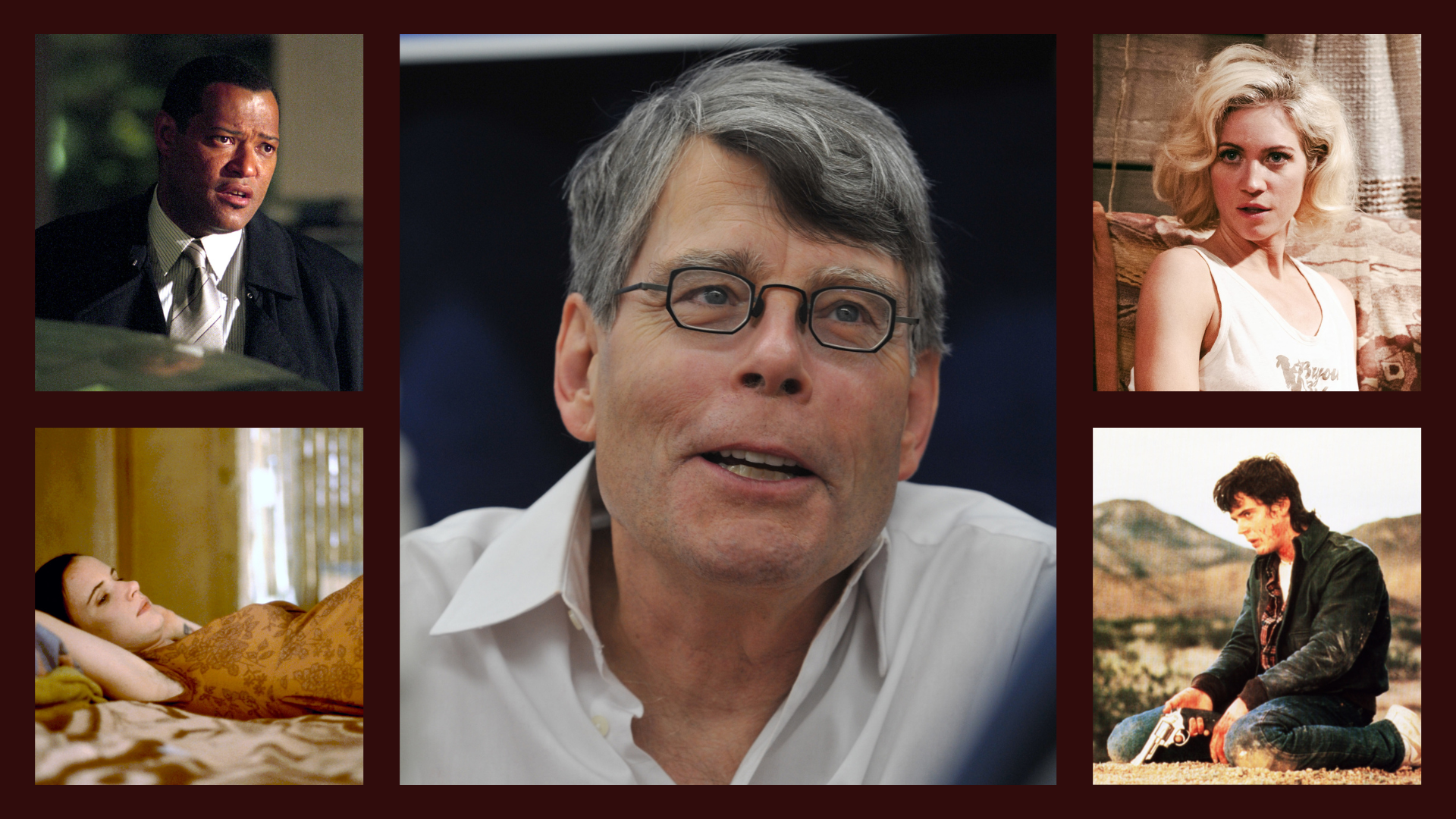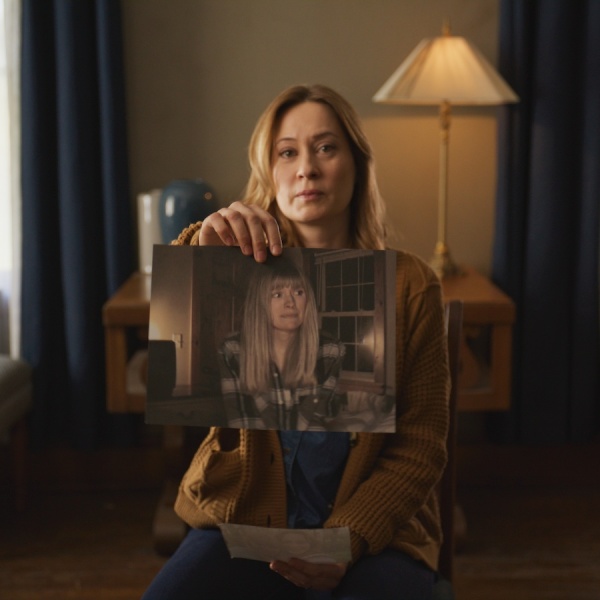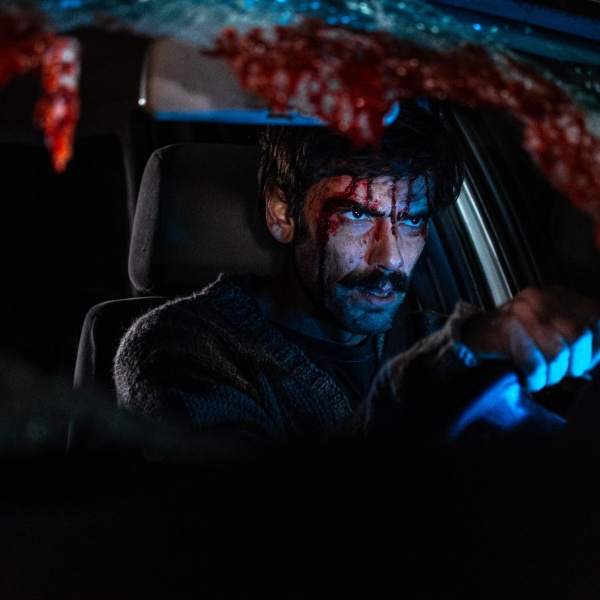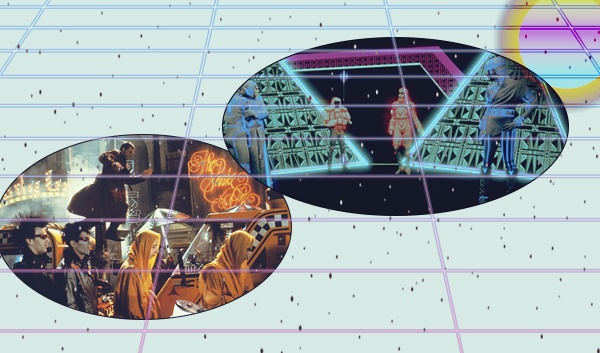Stephen King is a tastemaker of terror. Ever since breaking out with “Carrie” — the sordid tale of a telekinetic teenager adapted into Brian De Palma’s 1976 classic starring Sissy Spacek — the horror author has had a hand in shaping our nightmares.
With dozens of novels, novellas, and short stories to his name, the 75-year-old writer has provided inspiration to just as many genre filmmakers. Mike Flanagan, the mastermind behind Netflix’s super successful “Haunting” anthology, has two King adaptations under his belt, including 2017’s “Gerald’s Game” (also released by the streaming giant) and 2019’s theatrically released “Doctor Sleep.” He’ll take on “The Dark Tower” as his next King project, after adapting Edgar Allan Poe’s “The Fall of the House of Usher” for Netflix.
Frank Darabont earned his three Oscar nominations working on Best Picture nominees “The Shawshank Redemption” and “The Green Mile,” both of which were based on King’s short stories. He’s also behind 2007’s “The Mist,” among numerous other King adaptations. Rob Reiner delivered the film closest to King’s heart with 1986’s “Stand by Me”: a semi-autobiographical coming-of-age story starring Wil Wheaton, Corey Feldman, Jerry O’Connell, and the late River Phoenix. Reiner would deliver Kathy Bates her first Best Actress nomination (and only win) with 1990’s “Misery”: a kidnapping thriller anchored in the infamous psychological implosion of brilliant King creation Annie Wilkes. David Cronenberg, George A. Romero, and more legends have also taken on King.
The author has spoken about various adaptations of his work over the years. Many will recall his lambasting of Stanley Kubrick’s widely celebrated “The Shining”: the 1980 Jack Nicholson masterwork King has likened to “a big, beautiful Cadillac with no engine inside it.” He has been just as blunt about films that have nothing to do with his work, but that King says he still dislikes. For example, he hated “Kill Bill Vol. 1” enough to write a complete review of it in 2007: calling Quentin Tarantino’s fourth film “narcissistic” and “not important.”
It’s those harsher words that have made King’s approval worth pursuing in Hollywood. Whether he is endorsing recent films on Twitter (er, X?) or calling out decades-old favorites in interviews, King’s opinion holds enough weight to sink a body and turn the tides for projects big and small.
With “Pet Sematary: Bloodlines,” a prequel to the 2019 adaptation of King’s iconic horror novel “Pet Sematary,” coming out this Friday, we dusted off our list of the author’s all-time favorite movies — whether they’re horror or another genre. Listed in no particular order, here are just 25 of the many films Stephen King has publicly recommended.
[Editor’s note: This list is not comprehensive and will serve as a living document to be updated over time.]
-
“Sorcerer” (1977)

Image Credit: Courtesy Everett Collection In a 2017 story for the British Film Institute, King revealed that his favorite movie of all time is the late William Friedkin’s “Sorcerer.” Based on the book “Le Salaire de la peur” by Georges Arnaud, the film stars Roy Scheider, Bruno Cremer, Francisco Rabal, and Amidou as four men tasked with making a dangerous shipment of dynamite from a small South American village. The film received mixed reviews at the time of its release, but is widely regarded as a classic now.
-
“Les Diaboliques” (1955)

Image Credit: BFI “Sorcerer” is actually the second film adaptation of Arnaud’s book, after “The Wages of Fear” by Henri-Georges Clouzot. While King prefers Friedkin’s take to Clouzot’s, the French filmmaker still made one of the author’s favorite movies: 1955’s “Les Diaboliques.” Starring Véra Clouzot as a wife who conspires to murder her cruel husband, Michel (Paul Meurisse), with the help of his mistress, Nicole (Simone Signoret). Writing about the film for BFI, King said that Clouzot “out-Hitchcocked Hithcock.”
-
“Duel” (1971)

Image Credit: Courtesy King evidently likes movies about trucks (what else explains “Maximum Overdrive”?) because his favorite Steven Spielberg film is the legendary director’s first, “Duel.” Originally a television film, the bare-bones “Duel” stars Dennis Weaver as a man terrorized by a mysterious driver of a giant semi-truck. “It’s his most inventive film, and stripped to the very core: one man, one truck, one fight to the death,” King wrote for the British Film Institute.
-
“The Autopsy of Jane Doe” (2016)

Image Credit: ©IFC Films/Courtesy Everett Collection Directed by André Øvredal, “The Autopsy of Jane Doe” stars Brian Cox and Emile Hirsch as a father and son duo who work as coroners hired to examine the body of an unidentified woman (Olwen Kelly). What seems like a simple job turns into a nightmare when the two begin to experience strange, seemingly supernatural events while near the body. In a 2017 tweet, King called the film “visceral horror to rival ‘Alien’ and early Cronenberg.”
-
“The Blair Witch Project” (1999)

Image Credit: ©Artisan Entertainment/Courtesy Everett Collection One of the most influential horror films of the ’90s, Daniel Myrick and Eduardo Sánchez’s “The Blair Witch Project” helped to popularize the found footage format and paved the way for franchises like “V/H/S” and “Paranormal Activity.” King said in a 2021 interview with Eli Roth for the Shudder documentary series “History of Horror” that he couldn’t finish the film on his first sitting: “I was in the hospital and I was doped up. My son brought a VHS tape of it and he said, ‘You gotta watch this.’ Halfway through it, I said, ‘Turn it off it’s too freaky.’”
In a 2010 reissue of his nonfiction book “Danse Macabre,” King included a short essay where he praised “Blair Witch” further. He wrote: “One thing about ‘Blair Witch:’ the damn thing looks real. Another thing about ‘Blair Witch:’ the damn thing feels real. And because it does, it’s like the worst nightmare you ever had, the one you woke from gasping and crying with relief because you thought you were buried alive and it turned out the cat jumped up on your bed and went to sleep on your chest.”
-
“Crimson Peak” (2015)

Image Credit: ©Universal/courtesy Everett / Everett Collection One of Guillermo del Toro’s more divisive films, “Crimson Peak” is a gothic romance that stars Mia Wasikowska as an author who marries an English baron (Tom Hiddleston) and moves to his remote mansion, where she begins to experience ghostly visions. Upon the film’s release, King tweeted that the movie is “gorgeous and just fucking terrifying.”
-
“Late Night with the Devil” (2023)

Image Credit: Courtesy SXSW Colin and Cameron Cairnes’ “Late Night with the Devil” hadn’t even come out before Stephen King was singing its praises.
“I got a screener,” the author tweeted in March 2023 about the ’70s period horror flick. “It’s absolutely brilliant. I couldn’t take my eyes off it. Your results may vary, as they say, but I urge you to watch it when you can.”
-
“Plane” (2023)

Image Credit: ©Lions Gate/Courtesy Everett Collection King isn’t a big fan of any “Children of the Corn” adaptations. Responding to a Twitter thread about one version he especially dislikes, the author instead recommended the Gerard Butler-starring action flick “Plane,” directed by Jean-François Richet, calling it “authentic fright or flight material.”
-
“Mystic River” (2003)

Image Credit: ©Warner Bros/Courtesy Everett Collection Slamming Quentin Tarantino’s “Kill Bill Vol. 1” as an empty, narcissistic, and “unimportant” film in Entertainment Weekly, King drew contrast with and heaped praise upon Clint Eastwood’s “Mystic River”: an emotional 2003 crime thriller starring Sean Penn.
“[‘Mystic River’] hones our interest the old-fashioned way: by building character and telling an actual story,” King wrote. “It begins in the mid-’70s, when three boys (Sean, Dave, and Jimmy) are approached by two men pretending to be cops. Determining Dave to be the easiest to separate from his playmates, the ‘cops’ put him in the back of their car and drive him away. For four days Dave is sexually abused by these human wolves. He finally escapes…except no one really escapes such treatment, and Clint Eastwood (who directed) and Dennis Lehane (who wrote the book) both know it.”
“We jump ahead 25 years, to the day before Jimmy’s teenage daughter is found murdered,” King continued. “What follows is a heart-wrenching tragedy culminating in the murder of an innocent man. With its razor-sharp script and strong performances (most of the kudos have gone to Sean Penn, but this is Kevin Bacon’s best acting job), the movie is an absolute joy. You’re never wondering if you should have gotten the small popcorn instead of the medium; you’re never checking your watch. You’re totally absorbed.”
-
“Dementia 13” (1963)

Image Credit: Courtesy Everett Collection In the introduction for his “Kill Bill Vol. 1” pan, King referenced a number of other films. The author first compared infamous misfire “The Godfather Part III” with Francis Ford Coppola’s earlier, miraculous “Dementia 13”: the indie horror flick that jumpstarted his legendary career.
“It’s said that in the ’60s, when Francis Ford Coppola was but a lad, he found himself working on one of Roger Corman’s pictures,” King explained. “According to legend, Coppola convinced Corman, a low-budget junkie, to let him make his own film on the side using Corman’s equipment and crew. The film Coppola then made (in nine days) was ‘Dementia 13.’ For mood, atmosphere, and plain old gut-churning horror, ’13’ makes ‘Psycho’ and ‘Night of the Living Dead’ look tame. ‘Dementia 13’ is a movie that matters.”
“Many years later, Coppola spent at least a thousand times what he spent on ‘Dementia 13’ to make the last of the ‘Godfather’ movies,” King continued. “The film is opulent, incoherent, and boring. ‘The Godfather Part III’ is a movie that doesn’t matter.”
-
“The Way of the Gun” (2000)

Image Credit: ©Artisan Entertainment/Courtesy Everett Collection In the conclusion of King’s “Kill Bill Vol. 1” review for Entertainment Weekly, the author called out two other films he considers to be masterful and important. First was Christopher McQuarrie’s “The Way of the Gun”: a 2000 genre-bending crime thriller and the filmmaker’s directorial debut after penning the Oscar-winning “The Usual Suspects.”
“Maybe the point is this: The movies that matter (and the books, and the music) call out to us in their own voices — voices that are sometimes low but always compelling,” King began. “Movies are the highest popular art of our times, and art has the ability to change lives. That means that some movies matter, and the best matter a lot. Every time I go, I go with the highest of high hopes, my ticket money in one hand and my heart in the other.”
“Most times the movie turns out to be a stinker, but sometimes you find a real classic like ‘The Way of the Gun,’ ‘Billy Elliot,’ or ‘Mystic River,” King concluded. “When that happens, I can steal this year’s World Series slogan and put it to even better use: I live for this.”
-
“Billy Elliot” (2000)

Image Credit: ©Universal/Courtesy Everett Collection “Billy Elliot,” the other film King mentioned, is a 2000 coming-of-age tale about an 11-year-old boy from a mining town who finds an unexpected love of ballet. The tender dramedy starred Jamie Bell in the titular role alongside Gary Lewis as Billy’s father and Julie Walters as his dance teacher. “Billy Elliot” was nominated for three Academy Awards, including Best Original Screenplay, Best Supporting Actress for Walters, and Best Director for Stephen Daldry.
-
“X” (2022)

Image Credit: Courtesy Everett Collection The first chapter in Ti West’s (so far) triumphant “X” trilogy is a ’70s slasher homage — with a doubling Mia Goth and psycho-biddy twist — that wowed audiences, critics, and King. It follows the cast and crew of a small porno who unwittingly plan to stay and film at a dangerous farm house.
“‘X’ is an extremely good horror movie,” the author tweeted in March 2022. “Scary, smart, knowing. Oh. And entertaining.”
-
“The Shawshank Redemption” (1994)

Image Credit: Courtesy Everett Collection Speaking with Deadline in 2016, King was asked about his personal favorite adaptations of his work. Perhaps unsurprisingly, the author responded first with “The Shawshank Redemption”: a seven-time Oscar nominee from 1995.
“I have a number that I like, but I love ‘The Shawshank Redemption’ and I’ve always enjoyed working with [director Frank Darabont],” King said. “He’s a sweet guy.” “The Shawshank Redemption” was adapted from King’s novella “Rita Hayworth and Shawshank Redemption” and stars Tim Robbins and Morgan Freeman as prison inmates.
-
“Stand By Me” (1986)

Image Credit: ©Columbia Pictures/Courtesy Everett Collection “And I love the Rob Reiner thing, ‘Stand by Me,’” King said, also to Deadline.
“It was moving,” King said of first seeing the film (via SlashFilm). “I think I scared the shit out of Rob Reiner. He showed it to me in the screening room at the Beverly Hills Hotel. When the movie was over, I hugged him because I was moved to tears, because it was so autobiographical.” The character of Gordie, played by Wil Wheaton, is based on King himself.
-
“Dr. Strangelove or: How I Learned to Stop Worrying and Love the Bomb” (1964)

Image Credit: Courtesy Everett Collection King is a notorious detractor of Stanley Kubrick’s “The Shining,” but doesn’t dislike the filmmaker in general. Speaking with Deadline, King said, “I met Kubrick and there’s no question he’s a terrifically smart guy. He’s made some of the movies that mean a lot to me, ‘Dr. Strangelove,’ for one and ‘Paths of Glory,’ for another.”
-
“Paths of Glory” (1957)

Image Credit: Courtesy Everett Collection “I think [Kubrick] did some terrific things but, boy, he was a really insular man,” King continued. “In the sense that when you met him, and when you talked to him, he was able to interact in a perfectly normal way but you never felt like he was all the way there. He was inside himself.”
-
“The Changeling” (1980)

Image Credit: Courtesy Everett Collection Amid a wave of King adaptations in 2017 (including the triumphant “It” and wildly underwhelming “The Dark Tower”), the British Film Institute screened a series of works inspired by the author’s writing. As part of the announcement, King shared some of his favorite horror films, which then ran as part of BFI’s Stephen King on Screen festival.
“For supernatural horror, I like Peter Medak’s film ‘The Changeling,’ starring George C. Scott in perhaps his last great screen role,” King wrote of the 1980 psychological thriller. “There are no monsters bursting from chests; just a child’s ball bouncing down a flight of stairs was enough to scare the daylights out of me.”
-
“Night of the Demon” (1957)

Image Credit: Courtesy Everett Collection “Although it’s old school, I love Jacques Tourneur’s ‘Night of the Demon,’ a pretty wonderful adaptation of M. R. James’ story, ‘Casting the Runes,” King wrote, recommending the 1957 black-and-white horror from James C. Wasson also for BFI. “Tourneur was a disciple of Val Lewton, which means the horror here is pretty understated, until the very end.”
-
“Village of the Damned” (1960)

Image Credit: Courtesy Everett Collection “On the subject of British horror (wrapped in an sci-fi bow), you can’t do much better than ‘Village of the Damned,’ directed by Wolf Rilla and — like ‘Night of the Demon’ — shot in beautiful black and white,” King wrote in another BFI blurb, recommending the 1960 vampiric alien invasion story. “It’s an adaptation of ‘The Midwich Cuckoos,’ by John Wyndham, and George Sanders does a stellar job as the schoolmaster tasked with teaching some very strange pupils.”
-
“The Hitcher” (1986)

Image Credit: ©TriStar Pictures/Courtesy Everett Collection “’The Hitcher’ is a terrifying road movie stripped back to basics,” wrote King for BFI. “What sets this apart, other than some spectacular stunts, is the amazing performance of Rutger Hauer as the mysterious and homicidal John Ryder. ‘Where did you come from?’ asks the terrified kid Ryder is chasing. ‘Disneyland,’ Ryder whispers back.”
-
“The Stepfather” (1987)

Image Credit: Courtesy Everett Collection In his final Stephen King on Screen recommendation for BFI, the author wrote, “While we’re talking about terrifying men who come from nowhere, there’s ‘The Stepfather,’ with Terry O’Quinn as the murderous (but charming) psycho looking for a family to love him. There’s that classic moment when he goes blank and says, ‘Saaay, who am I this time?’ before bludgeoning his wife with a telephone.”
-
“The Hurt Locker” (2009)

Image Credit: Summit Entertainment/courtesy Everett Collection In a columnn for Entertainment Weekly, published New Year’s Day in 2010, King listed his favorite films from 2009. That year’s Best Picture winner, “The Hurt Locker,” topped the author’s list.
“Bomb disposal is one of the great staples of war movies, but it has never been depicted in such terrifying detail as it is here,” King said. “‘Locker’ is more than suspenseful, however. Director Kathryn Bigelow (Point Break), who has explored the destructive impulses of young men before, outdoes herself in this perfectly honed drama that speaks to the addictive attractions of risk and violence. Want to know why it’s so easy for the pols to feed the war machine? Look here for answers.”
-
“The Last House on the Left” (2009)

Image Credit: Rogue Pictures/Everett Collection Coming in at number two on King’s list of 2009 favorites (via Entertainment Weekly), this aughts remake of a Wes Craven classic impressed King more than the original.
“Easily the most brilliant remake of the decade, and not just because the 1972 original was such a crapfest,” King said. “This beautifully photographed — but hard to watch — movie is the standard by which all horror/suspense films should be judged: The acting is superior ([‘Breaking Bad’ star] Aaron Paul is especially fine), the story makes sense, and, most importantly, [the film’s] moral compass points to true north. We don’t want these creeps back for six or eight sequels; they are monsters, and we want them dead. This film is on par with ‘The Silence of the Lambs.’”
-
“The Road” (2009)

Image Credit: ©Dimension Films/Courtesy Everett Collection “Cormac McCarthy’s novel of the apocalypse comes to the screen with all its spare and deadly beauty intact,” King wrote of John Hillcoat’s 2009 adapation for Entertainment Weekly. “It’s often painful to watch (at my screening I actually heard the projectionist sobbing as the film neared its end), but Viggo Mortensen’s performance as the dedicated father is Oscar bait.”
“The Road” received no Academy Award nominations, but was recognized at that year’s Critics’ Choice Movie Awards with nominations for Mortensen for Best Actor; for Kodi Smit-McPhee for Best Young Performer; and for Best Makeup.






